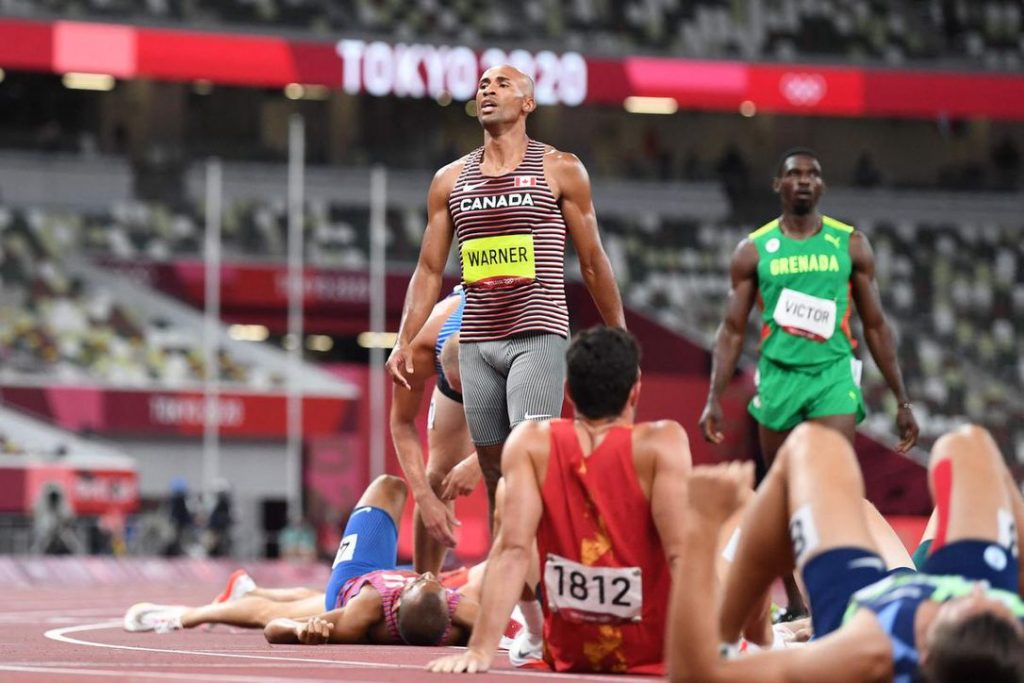The Tokyo 2020 Olympics is set to stage a Decathlon over two days
The Decathlon lasts two days in which contestants take part in 10 track-and-field events.
The event was initially introduced as a three-day affair at the 1912 Stockholm Olympics. Points are awarded for the performances in each event, with the overall leader winning Gold in the event. The USA has been the most successful nation in Olympic decathlon history.
Their legends include Bob Mathias, the 1948 and 1952 Olympic champion, and 2012 and 2016 gold medallist Ashton Eaton.
Damian Warner is the No. 1 ranked athlete in the World Rankings for almost 100 weeks now. The American athlete Jim Thorpe was the first Olympic decathlon champion.
Decathletes are allowed to commit one false start in the track events. A second false start will lead to disqualification. In the shot, long jump and javelin all athletes are limited to three attempts.
If there is a tie on points, then the athlete with the most points in the majority of the events wins. If the tie remains, the athlete with the most points in any one of the events is awarded the win.
A decathlete needs four main skills i.e speed, explosive strength, skill and agility.
The 2001 IAAF points tables use the following formulae:
- Points = INT(A(B — P)C) for track events (faster time produces a higher score)
- Points = INT(A(P — B)C) for field events (greater distance or height produces a higher score)
Day 1 Events
- 100 meters
- Long jump
- Shot put
- High jump
- 400 meters
Day 2 Events
- 110 meters hurdles
- Discus throw
- Pole vault
- Javelin throw
- 1500 meters
There are various benchmarks in different sports, which allocate the points to make up the position in the Top 10.
| Event | 1,000 pts | 900 pts | 800 pts | 700 pts | Unit |
|---|---|---|---|---|---|
| 100 m | 10.395 | 10.827 | 11.278 | 11.756 | Seconds |
| Long jump | 7.76 | 7.36 | 6.94 | 6.51 | Metres |
| Shot put | 18.40 | 16.79 | 15.16 | 13.53 | Metres |
| High jump | 2.20 | 2.10 | 1.99 | 1.88 | Metres |
| 400 m | 46.17 | 48.19 | 50.32 | 52.58 | Seconds |
| 110 m hurdles | 13.80 | 14.59 | 15.419 | 16.29 | Seconds |
| Discus throw | 56.17 | 51.4 | 46.59 | 41.72 | Metres |
| Pole vault | 5.28 | 4.96 | 4.63 | 4.29 | Metres |
| Javelin throw | 77.19 | 70.67 | 64.09 | 57.45 | Metres |
| 1500 m | 3:53.79 | 4:07.42 | 4:21.77 | 4:36.96 | Minutes:Seconds |
Damian Warner wins gold for Canada in decathlon at Tokyo Olympics
Warner created history by winning the Gold medal in the Decathlon event at the 2020 Olympics. The Canadian won with an Olympic record-setting 9,018 points. Kevin Mayer of France, who holds the current record, won silver with 8,726 points. Ashley Moloney of Australia won bronze with 8,649 points.

After the match, the Canadian spoke in an interview saying: (h/t Olympics)
“When I was in grade six I wrote in a school project that I’d be in the Olympics one day, and who would have known that I would be an Olympic gold medallist.” said Warner, who won bronze at the Rio Olympics.
“I had a gameplan on where I needed to be, and when I came around at 1,200m I was three seconds off the pace. I was like, ‘if I’m going to get this 9,000 points I have to go now’, and I gave it everything I had. It wasn’t pretty but we got the job done.”
“We found an indoor abandoned hockey rink, or one that was also closed down because of COVID. We built this makeshift facility inside a hockey rink so it couldn’t be more Canadian.”
Warner became just the fourth decathlete in history to break 9,000 points. The 31-year old lead throughout each event and won with a fifth place finish (4:31.08) in the 1,500m. As the points were tallied, Warner looked unbelievably surprised after realising his dream come true.

